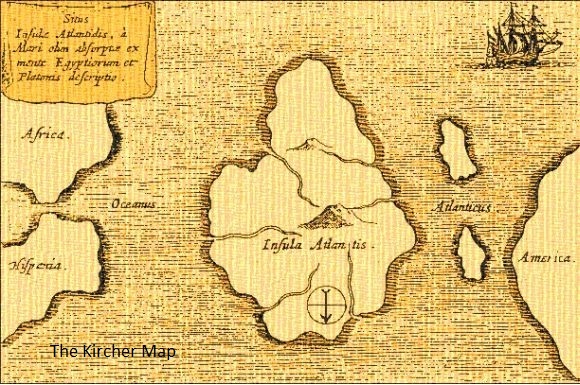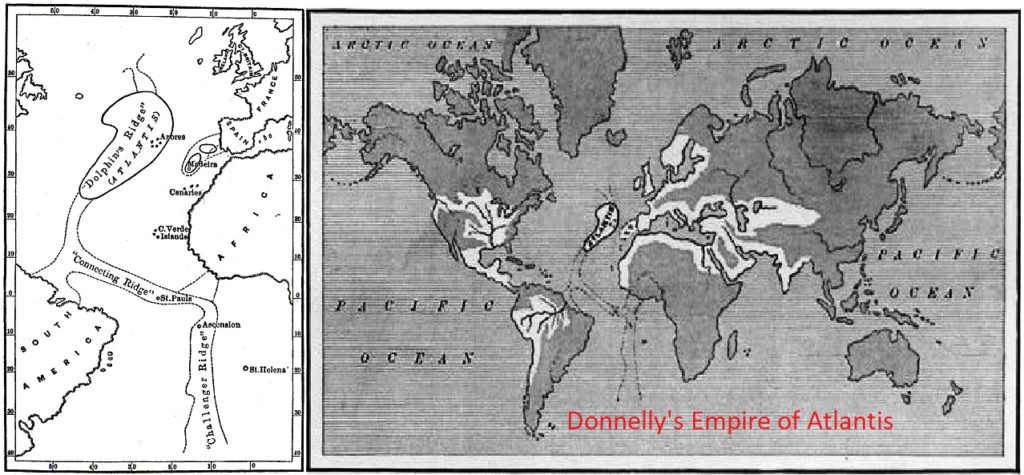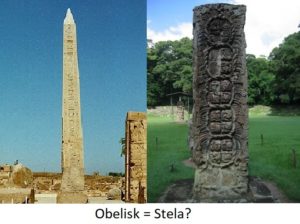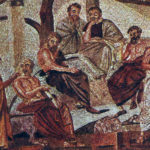 In about 360 BC, the philosopher Plato started something he failed to finish—a trilogy of dialogues expanding on his Republic, written a couple of decades before. But he started something else as well: the legend of a civilization that crashed beneath the waves in an ancient cataclysm, a haunting tale of hubris and the vengeance of the gods, a quest for lost wisdom and vanished glory—Atlantis.
In about 360 BC, the philosopher Plato started something he failed to finish—a trilogy of dialogues expanding on his Republic, written a couple of decades before. But he started something else as well: the legend of a civilization that crashed beneath the waves in an ancient cataclysm, a haunting tale of hubris and the vengeance of the gods, a quest for lost wisdom and vanished glory—Atlantis.
Plato has a lot to answer for.
Though, to be fair, it is not really Plato’s fault. How could he have known that his abortive Atlantis fantasy, abandoned on the drawing board, would spawn such an industry over the millennia? Imagine, a couple of thousand years from now, Tolkien’s reaction to a serious search for the site of Mordor, and the exact spot where Frodo threw the One Ring into Mount Doom….no, we can’t really blame Plato. So who can we blame?
Most of Plato’s contemporaries and successors, as far as one can tell from the 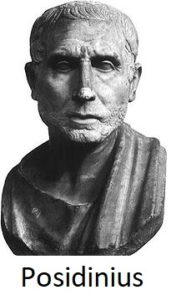 surviving literature, were inclined to treat the Atlantis story as a plot device straight out of Plato’s fertile brain. For example, no mention of it is found in the preserved works of the Atthidographers, the Attic historians , whom you would expect to pick up on such a dazzling start to the history of Athens—if they thought Plato was recounting real history. Indeed, there is nothing to show that anybody took it as history instead of metaphor until the platonist philosopher Crantor, who was born about the same time Plato died, in the mid-4th century BC, and produced copious commentaries on Plato’s works. A couple of centuries later, the brilliant geographer Posidonius of Rhodes (c.135 BC – c.51BC) included Atlantis in a discussion of cities destroyed by a combination of earthquake and tsunami, though he did not claim to believe it happened.
surviving literature, were inclined to treat the Atlantis story as a plot device straight out of Plato’s fertile brain. For example, no mention of it is found in the preserved works of the Atthidographers, the Attic historians , whom you would expect to pick up on such a dazzling start to the history of Athens—if they thought Plato was recounting real history. Indeed, there is nothing to show that anybody took it as history instead of metaphor until the platonist philosopher Crantor, who was born about the same time Plato died, in the mid-4th century BC, and produced copious commentaries on Plato’s works. A couple of centuries later, the brilliant geographer Posidonius of Rhodes (c.135 BC – c.51BC) included Atlantis in a discussion of cities destroyed by a combination of earthquake and tsunami, though he did not claim to believe it happened.
Interest and belief in Atlantis picked up in the Roman period, and then among the early Church Fathers—often because of the divine retribution aspect—but once the Middle Ages set in, Europe had other things to think about, and the treasures of classical literature were left to be safeguarded in the literate and civilized Muslim world. Legends abounded of imaginary islands in the Atlantic, but Atlantis was not one of them.
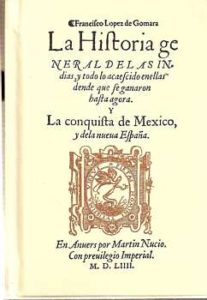 Then came the Renaissance and the Age of Exploration, when European ships broke the barriers between the Eurocentric world and the rest. The Atlantis legend came out of a long period of obscurity – the Euro-explorers and the scholars at home were much exercised to explain the new worlds and new civilizations they were stumbling on, which did not seem to be covered in the Bible. Inevitably there was a lot of talk about the Ten Lost Tribes and so forth, but this was also the true birth of the great pseudoscience of Atlantology. As early as 1553, Lopez de Gomara suggested the Amerinds were descendants of Atlantean survivors, largely on iffy linguistic evidence. In1572, Pedro Sarmiento de Gamboa suggested that New World civilizations were partially derived from Atlantis. In 1674, the English traveller John Josselyn wrote that the New World was Atlantis. And so it went.
Then came the Renaissance and the Age of Exploration, when European ships broke the barriers between the Eurocentric world and the rest. The Atlantis legend came out of a long period of obscurity – the Euro-explorers and the scholars at home were much exercised to explain the new worlds and new civilizations they were stumbling on, which did not seem to be covered in the Bible. Inevitably there was a lot of talk about the Ten Lost Tribes and so forth, but this was also the true birth of the great pseudoscience of Atlantology. As early as 1553, Lopez de Gomara suggested the Amerinds were descendants of Atlantean survivors, largely on iffy linguistic evidence. In1572, Pedro Sarmiento de Gamboa suggested that New World civilizations were partially derived from Atlantis. In 1674, the English traveller John Josselyn wrote that the New World was Atlantis. And so it went.
At the same time, the mapmakers of Europe were having a hard time keeping up with the flood of new and often inaccurate and contradictory data. They had a tendency to try to include lots of legendary or semi-mythical places, including Atlantis, as on the famous 1665 map of Athansius Kircher. But this was not just the Age of Exploration, it was also the Renaissance. And fittingly, a seminal figure in the new school of Atlantology was a true Renaissance Man, though his story is peculiar and utimately quite sad.
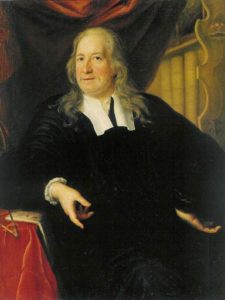 The man is Olaus Rudbeck (1630-1702), aka Olof Rudbeck the Elder, the great 17th-century sage of the University of Uppsala in Sweden. He was a true genius – one of the discoverers of how the lymphatic system works, a botanist and astronomer and politician and all-around hyperactive man of science and letters. But in his middle years, he became passionately – and then obsessively – interested in the Scandinavian past. Gradually, he became convinced that Scandinavia, Sweden in particular, was the cradle of all civilization; that the Scandinavian gods were the root source of the Mediterranean gods; and that Uppsala was Atlantis. His evidence was wide-ranging, and included excavations and surveys of ancient sites, but he based his theory mostly on ingenious and idiosyncratic readings of ancient texts. For example, he contended that Jason and the Argonauts brought the golden fleece home via the Frozen North.
The man is Olaus Rudbeck (1630-1702), aka Olof Rudbeck the Elder, the great 17th-century sage of the University of Uppsala in Sweden. He was a true genius – one of the discoverers of how the lymphatic system works, a botanist and astronomer and politician and all-around hyperactive man of science and letters. But in his middle years, he became passionately – and then obsessively – interested in the Scandinavian past. Gradually, he became convinced that Scandinavia, Sweden in particular, was the cradle of all civilization; that the Scandinavian gods were the root source of the Mediterranean gods; and that Uppsala was Atlantis. His evidence was wide-ranging, and included excavations and surveys of ancient sites, but he based his theory mostly on ingenious and idiosyncratic readings of ancient texts. For example, he contended that Jason and the Argonauts brought the golden fleece home via the Frozen North.
A crucial first: Rudbeck pioneered a factor we see again and again in the history of alternative studies, the use of a golden legendary past to promote national pride and to archaize national roots. It is also, of course, an application of the primitivist principle. Like many since who have dabbled in pseudoscholarship, he proudly claimed that his discovery would turn the orthodox history of the world on its head. What sadly happened is that his head was turned.
Now comes an interesting development, the expansion of Atlantology to include a couple of entirely new lost continents. The first requires a bit of background. When the Spanish took over Central America, one of the many vile things that happened was the burning of most of the Mayan codices, or books, as works of the devil, 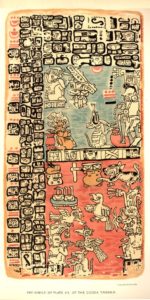 mostly by a Jesuit bishop named Diego de Landa, may his name be forever cursed. One of the three surviving books was the Troano Codex, now united with its other half to form the Madrid Codex.
mostly by a Jesuit bishop named Diego de Landa, may his name be forever cursed. One of the three surviving books was the Troano Codex, now united with its other half to form the Madrid Codex.
De Landa, destructive as he was, nevertheless took care to write down the Mayan “alphabet,” extracted from terrified survivors –but he got it wrong. The Mayan writing system was pictographic, not phonetic, and his “alphabet” was nonsense. It is only over the last fifty-odd years that the Mayan script has been gradually and painstakingly deciphered, a scholarly task that would not have been necessary if de Landa had not destroyed most of the codices in the first place. The Troana Codex, at any rate, has now been deciphered, and it is a work of astrology and liturgy.
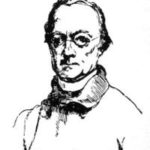 Here is the relevance to Atlantology. In 1864, the French abbé Charles-Etienne Brasseur de Bourbourg ran across a copy of de Landa’s “alphabet,” and set himself to translating the Troana Codex. Since he was using nonsense as his key, his “translation” was also nonsense – but one with consequences. He came up with a markedly muddled story of a volcanic eruption that destroyed a continent, the name of which he deciphered as “Mu,” and he himself pointed out the parallels between his Mu and Plato’s Atlantis.
Here is the relevance to Atlantology. In 1864, the French abbé Charles-Etienne Brasseur de Bourbourg ran across a copy of de Landa’s “alphabet,” and set himself to translating the Troana Codex. Since he was using nonsense as his key, his “translation” was also nonsense – but one with consequences. He came up with a markedly muddled story of a volcanic eruption that destroyed a continent, the name of which he deciphered as “Mu,” and he himself pointed out the parallels between his Mu and Plato’s Atlantis.
He was a genuine scholar, who made real contributions to Mayan history and anthropology. He cannot be faulted very far – he had no reason to know that de Landa’s “alphabet” was such a piece of rubbish. At any rate, this was the source, the whole source and nothing but the source, of the lost continent known as MU – a nonsensical interpretation of a genuine text, using a totally fallacious key.
The continent of Mu was taken up about twenty years later by Dr. Augustus Le Plongeon, a photographer and medical doctor who undertook archaeological excavations and linguistic studies in the Yucatan. He also, like Brasseur, translated the Troano Codex, but with much more spectacular results, which he published in 1886 in his slim volume: Sacred Mysteries among the Mayas and the Quiches 11,500 Years Ago.
The Abbe Brasseur’s translation was incoherent but fairly sober. Le Plongeon 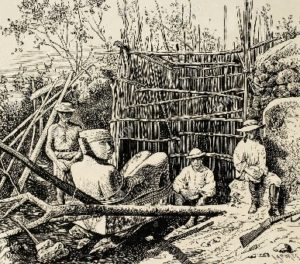 extracted the dramatic tale of Moo, Queen of Atlantis, which was also known as Mu, whose two brothers vied for her love. Tragedy struck – the rejected suitor murdered the other, and then deposed Queen Moo – somehow this coincided with a great natural disaster that sank Mu the continent into the sea, along with its 64,000,000 inhabitants. Moo the queen fled to Egypt, where she founded the Egyptian culture and built the sphinx as a monument to her dead lover. For some reason, this effort was greeted with derision, and Le Plongeon was incensed at how closed-minded the other scholars were when presented with new ideas. (Another hauntingly familiar refrain.)
extracted the dramatic tale of Moo, Queen of Atlantis, which was also known as Mu, whose two brothers vied for her love. Tragedy struck – the rejected suitor murdered the other, and then deposed Queen Moo – somehow this coincided with a great natural disaster that sank Mu the continent into the sea, along with its 64,000,000 inhabitants. Moo the queen fled to Egypt, where she founded the Egyptian culture and built the sphinx as a monument to her dead lover. For some reason, this effort was greeted with derision, and Le Plongeon was incensed at how closed-minded the other scholars were when presented with new ideas. (Another hauntingly familiar refrain.)
So Mu is one of the latter-day additions to the Atlantis canon—more about it later. The other is Lemuria, which had a different but also interesting genesis around the  same time, ironically coming out of an abandoned scientific hypothesis. In the 1860s and 1870s, a number of naturalists who had seized happily on Darwinian natural selection were puzzled by the correspondence of rock strata in Madagascar and across the Indian Ocean in India, and also by the fact that fossil lemurs were found in India, but living lemurs were found nowhere but Madagascar.
same time, ironically coming out of an abandoned scientific hypothesis. In the 1860s and 1870s, a number of naturalists who had seized happily on Darwinian natural selection were puzzled by the correspondence of rock strata in Madagascar and across the Indian Ocean in India, and also by the fact that fossil lemurs were found in India, but living lemurs were found nowhere but Madagascar.
To account for these and other observations, they proposed a now-sunken land bridge across the Indian Ocean, analogous to the one across the Bering Strait, which they named “Lemuria” for obvious reasons. The land bridge was thought to have sunk long before men evolved, and anyway the whole idea was abandoned by scientists even before plate tectonics came along. Nonetheless, Lemuria joined the pantheon of lost continents, and is still there. More about Lemuria and its spinoffs later, too.
Next we have Ignatius Donnelly, perhaps the most influential of the early Atlantis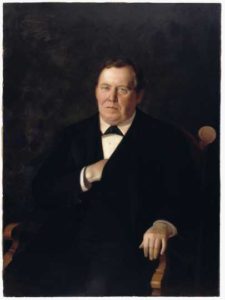 scholars. His diffusionist arguments pop up, virtually unchanged, in the works of people like Erich von Daniken and Graham Hancock, and to a lesser extent in those of Zechariah Sitchin and Immanuel Velikovsky. Effectively, Donnelly is the grandfather of junk cross-cultural analogy. Like Rudbeck, he was a hyperactive genius: a self-educated man, a sometime congressman and vice-presidential candidate, and a writer of extremely thick, popular books of speculative history. Here are the big three:
scholars. His diffusionist arguments pop up, virtually unchanged, in the works of people like Erich von Daniken and Graham Hancock, and to a lesser extent in those of Zechariah Sitchin and Immanuel Velikovsky. Effectively, Donnelly is the grandfather of junk cross-cultural analogy. Like Rudbeck, he was a hyperactive genius: a self-educated man, a sometime congressman and vice-presidential candidate, and a writer of extremely thick, popular books of speculative history. Here are the big three:
- Atlantis: The Antediluvian World (1882)
- Ragnarok, the Age of Fire and Gravel (1883)
- The Great Cryptogram (1888) [Francis Bacon as Shakespeare]
These were Donnelly’s main points:
- Atlantis was a large continent in the Atlantic, outside Gibraltar.
- It was the wellspring of all civilization: all gods, writing, technology and arts.
- It was destroyed in a terrible natural disaster, along with most of its inhabitants.
- Its few survivors escaped on ships and spread culture (and news of the disaster) globally.
- Its memory is preserved in world culture and in the Deluge myths.
These may sound hauntingly familiar , as they are the arguments still used by the Lost Civilization pseudoscholars. I should say, though, that at that time his diffusionist argument was not far different from what orthodox scholars were thinking – that culture had started in one particularly golden and gifted place, and spread out to the rest of the world. But that idea was already crumbling under the weight of archaeological evidence, and has been long abandoned by mainstream scholars; it is only in alternative archaeology that it lingers on.
Donnelly placed Atlantis as part of the mid-Atlantic ridge, more or less where Kircher’s 17th century map placed it – again, not a bad idea for his time, though plate tectonics has destroyed it for us. And he gave Atlantis an empire which looks not unlike the maps of Hancock and Co’s glacial supercivilization. His scholarship, alas, was very loose, and his evidence no more convincing then than it should be now.
He based his thesis largely on some totally batty linguistic parallels, and what he considered to be uncanny correspondences between the Old and the New World—things like Egyptian obelisks and Mayan stele, pyramids, and the fact that both sides practised agriculture, bronze metallurgy, marriage and divorce. If this were a valid parallel, you would also expect some close correspondence in how these different civilizations did those things – but we see different crops, different techniques, and different rules in different societies, with every evidence of having developed independently and in place.
Now, all the true believers mentioned so far thought of Atlantis as an archaeological and historical mystery, but their theories were still solidly based in the real world. A whole new strand, however, was already being woven into the tapestry.
Next: The Mystical Atlantis

